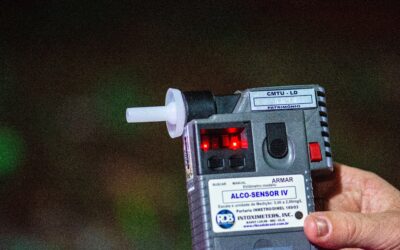Sentencing Guidelines in Minnesota
Understand Your Minnesota Criminal Charges Get a free case evaluationFree Case Evaluation
Principles of Minnesota Sentencing Guidelines
The underlying reason for sentencing guidelines is so that people convicted of a similar felony under the same circumstances receive similar sentences. They’re also used so felons who are substantially different receive a proportional sentence within the guidelines.
Obviously, prison is the most severe penalty but it’s not the only sanction available to a judge. Because state and local correctional facilities can hold only so many people, incarceration should be limited to people convicted of the most serious crimes or who have a long history of offenses. As a result, we argue on behalf of clients for a judge to impose the least restrictive penalty available, offering mitigating circumstances that may have resulted in a crime being committed. We seek what are known as mitigated dispositional and durational departures from the sentencing guidelines.
Obtaining Equal Justice for Criminal Defendants in Minnesota
An important part of our job as criminal defense attorneys is to ensure that the punishment fits the crime. Clients who have been found guilty of relatively minor penalties and who have no criminal history as adults need to have aggressive lawyers arguing for the minimum sentence allowed under the guidelines. Often, probation or house arrest is the most-fitting penalty while still serving the interests of the community.
Contact the experienced Minneapolis criminal defense attorneys and St.Paul criminal defense attorneys at Sieben Edmunds Miller.
Get a Free Case Evaluation
We are here to help. Let us evaluate your case for you. Free of charge – no obligation. Complete our free case evaluation form or call us directly at (651) 323-2464.
Recent Blog Posts
Common Misconceptions About CHIPS Cases in Minnesota
For many parents, learning that they are involved in a CHIPS (Children in Need of Protection or Services) case is overwhelming. Unfortunately, there are many misconceptions about how these cases work, what rights parents have, and what outcomes are possible....
Understanding Your Rights in a CHIPS Case: A Guide for Minnesota Parents
When facing a CHIPS (Children in Need of Protection or Services) case, parents often feel overwhelmed, confused, and uncertain about what rights they still have. While the court and social services are involved in determining what is best for the child, parents are...
Challenging the Results: How a Criminal Defense Attorney Can Fight a DWI Charge Based on Faulty Field Sobriety Tests
A DWI arrest in Minnesota can be a frightening and disorienting experience. Often, the prosecution's case hinges heavily on the results of field sobriety tests (FSTs). However, these tests are not infallible, and a skilled criminal defense attorney can challenge their...
What Are the Legal Consequences of Street Racing in Minnesota?
Street racing is a dangerous and illegal activity that poses a serious threat to drivers, passengers, and pedestrians. In Minnesota, participating in or organizing a street race can result in severe criminal penalties, including jail time, hefty fines, license...
Cuando la Inmigración Se Cruza con el Derecho Penal: Protegiendo Su Futuro Frente a Desafíos Legales
Navegar por el sistema legal como inmigrante puede ser abrumador, especialmente cuando están involucrados cargos criminales. Como abogada de defensa penal con experiencia en derecho de inmigración, he visto cómo estas dos áreas pueden afectar profundamente a la vida...
When Immigration Meets Criminal Law: Protecting Your Future in the Face of Legal Challenges
Navigating the legal system as an immigrant can be overwhelming, especially when criminal charges are involved. As a criminal defense attorney with a background in immigration law, I've seen how these two areas intersect in ways that can deeply affect lives. In this...
Free Case Evaluation
Contact Info
Note: The use of the Internet or this form for communication with the firm or any individual member of the firm does not establish an attorney-client relationship. Confidential or time-sensitive information should not be sent through this form.




